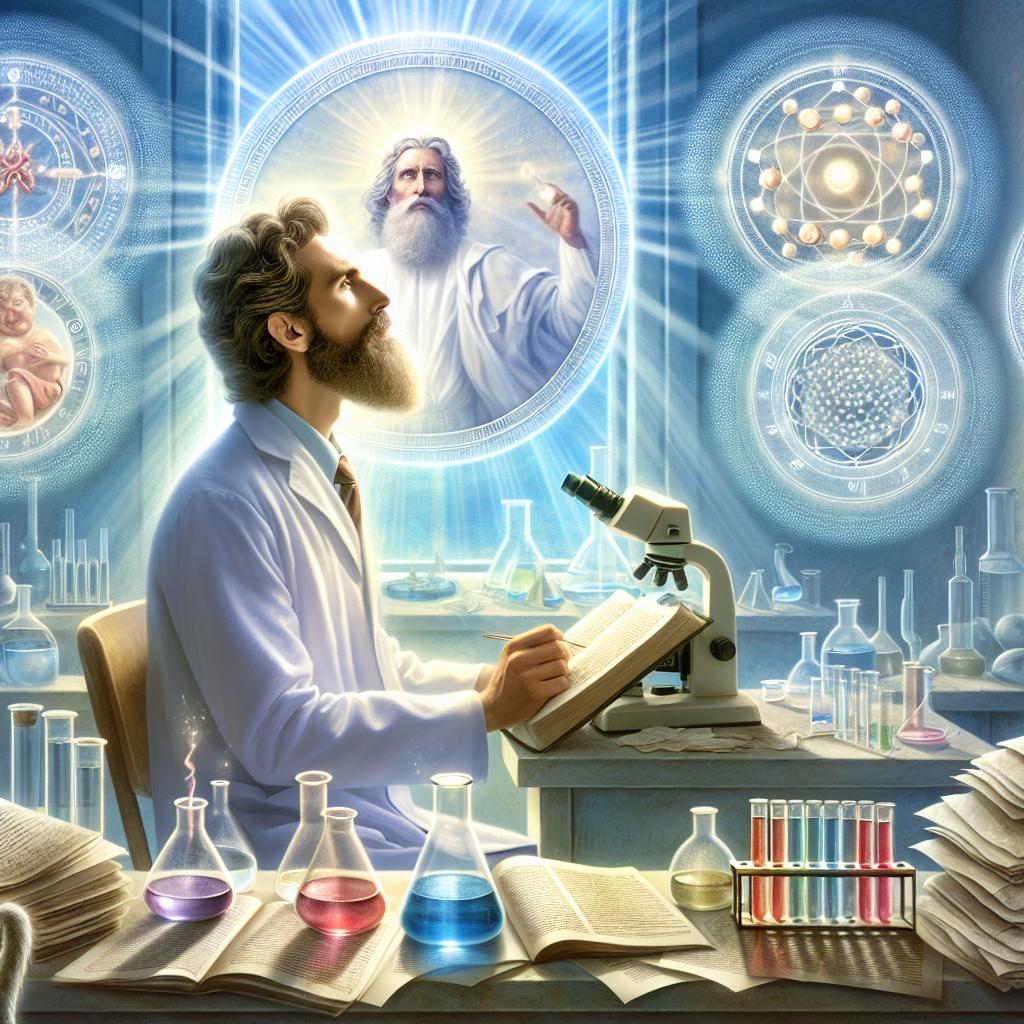
6-Day Creation: Paul Giem's Impact on Christian Medical Research
Published: 03 April 2024
In Six Days: Why 50 Scientists Choose to Believe in Creation
by Paul Giem, Assistant Professor of Emergency Medicine at Loma Linda University
Introduction
Growing up in a family that respected both science and religion, I was faced with the challenge of reconciling the majority of scientists' views on evolution with the biblical account of creation. My parents believed in a literal interpretation of the six-day creation as described in Genesis, and this belief was reinforced by their understanding of the Fourth Commandment, which references a six-day creation followed by a day of rest. However, I struggled to find a satisfactory answer to the apparent conflict between science and scripture.
Science and Authority
My upbringing taught me to question authority and rely on evidence. This applied both to science and to religious traditions. While science demanded evidence to support its claims, religious traditions relied on scriptural evidence. The conflict arose when science seemingly contradicted scripture. Many of my college professors proposed that scientific evidence was inconclusive and that scripture could provide additional evidence for a theistic and Christian perspective. Though unsatisfying at first, this notion hinted that science could sometimes support theological beliefs.
The Origin of Life
During my college years, I pursued dual studies in theology and chemistry. For my senior chemistry seminar, I decided to explore the experiments conducted on the origin of life. I expected to find room for doubt but was surprised by the overwhelmingly one-sided evidence against spontaneous generation—the idea that life could arise spontaneously from non-living matter. This evidence convinced me not only of the existence of God but also that mechanistic evolution was inconsistent with scientific findings.
The Dispute Between Theistic Evolution and Special Creation
While the evidence against spontaneous generation supported a creator, it did not resolve the dispute between theistic evolution (the belief in an evolutionary process guided by God) and special creation (the belief in separate acts of creation). The main point of contention between the two camps seemed to be time—both relative and absolute. Relative time refers to the rate at which geological strata formed, while absolute time pertains to the specific dates assigned to different geological eras based on evolutionary estimates and radiometric dating.
Investigating Radiometric Dating
To further explore the issue of time, I delved into radiometric dating. My findings revealed several problems with various dating methods. For instance, potassium-argon dating relied on the assumption that all argon is driven off during rock formation, but this assumption was not valid. Moreover, there were instances of both "too old" and "too young" dates that did not align with the evolutionary timescale. Similar issues were found in other dating methods such as rubidium-strontium dating and uranium-lead dating.
Carbon-14 Dating
Carbon-14 dating particularly fascinated me. Fossil carbon, which conventionally dated back millions of years, consistently yielded radiocarbon dates that suggested a much younger age. This discrepancy was compatible with a chronology of around 4,000 years in real time—a timeframe consistent with a literal interpretation of the Bible. Carbon-14 dating thus presented a significant challenge to the notion of an ancient earth.
Implications for Biblical Interpretation
Accepting the existence of an intelligent designer and embracing a short timescale for creation made it difficult to ignore the claims of the Bible. Furthermore, attempts to explain the Creation Week using Mesopotamian or Egyptian legends fell short in accounting for the unique details found in Genesis 1–9. This suggested that these biblical passages were not mere myths but accurate accounts of historical events.
Why This Matters
The issues surrounding creation and evolution have profound implications for our understanding of God's Word and our place in the world. By exploring scientific evidence alongside scriptural teachings, we can deepen our understanding of both science and faith. Engaging with these topics allows us to appreciate the trustworthiness of the Bible and its relevance to our lives.
Think About It
- How does a literal interpretation of the six-day creation account in Genesis impact your understanding of the Bible?
- Have you ever considered the scientific evidence that challenges evolutionary theories? How does this evidence shape your views on creation?
- Reflect on the implications of a young-earth perspective for your faith and worldview. How might it inform your understanding of God's character and His relationship with humanity?
In conclusion, my journey as a scientist and a believer has led me to appreciate the compatibility between science and a literal interpretation of the Bible. By critically examining scientific evidence and its implications, we can deepen our understanding of God's creation and the trustworthiness of His Word.
